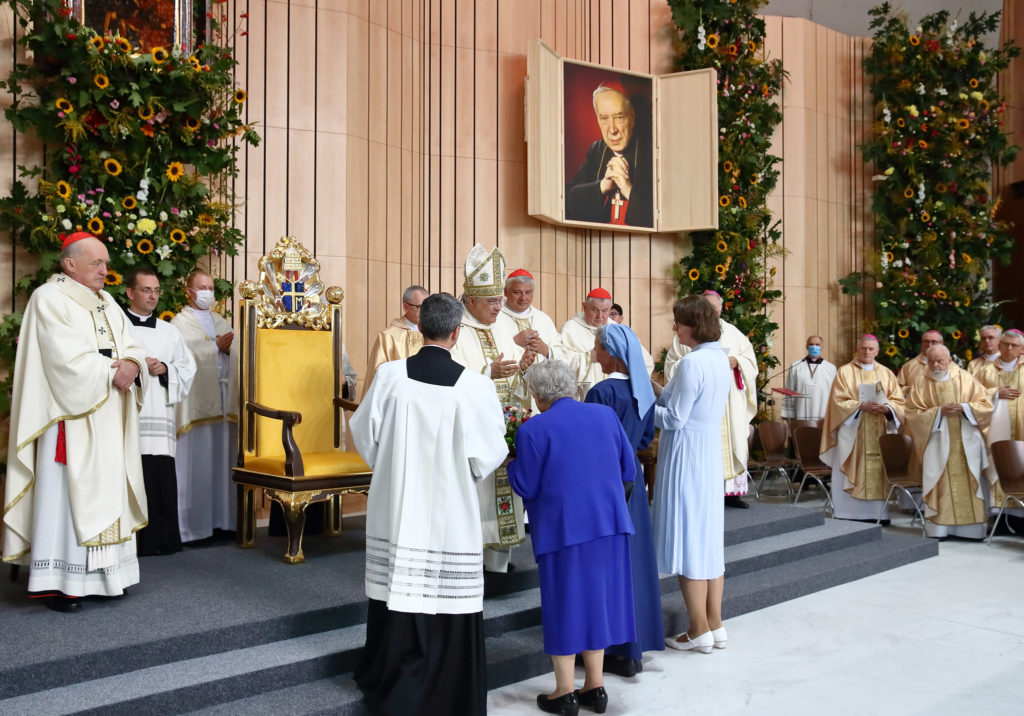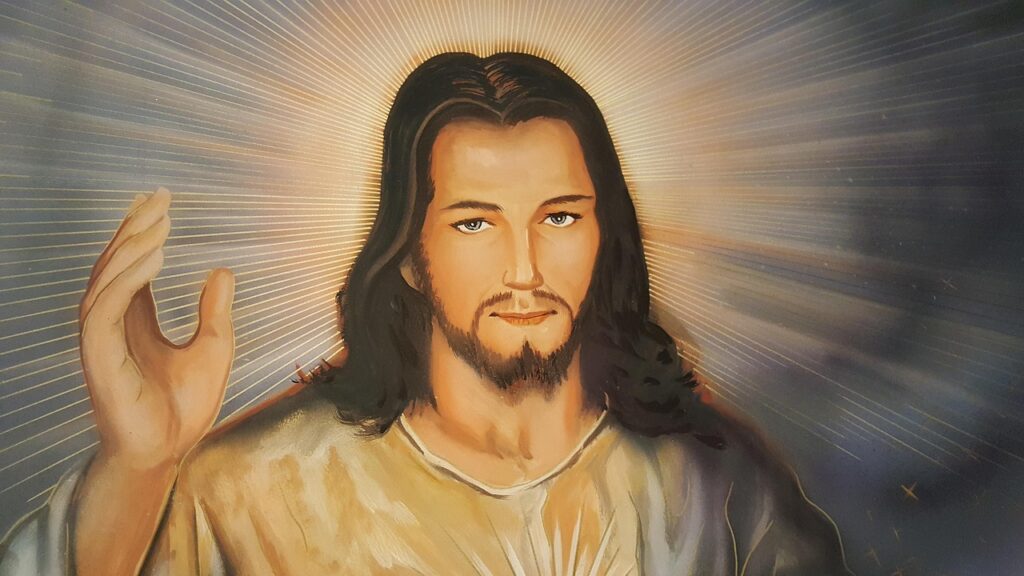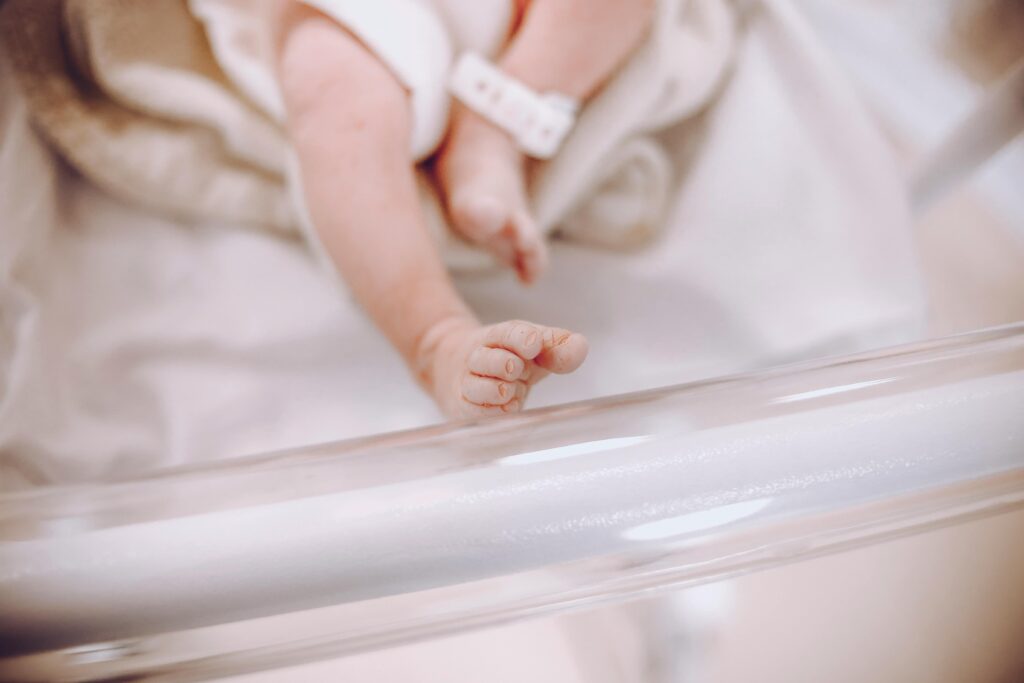Homily at Beatification of Two Poles
Stefan Wyszyński and Elżbieta Róża Czacka

Below is the homily by the Prefect of the Congregation for the Causes of Saints, Cardinal Marcello Semeraro, at Holy Mass with the rite of Beatification of the Servants of God Stefan Wyszyński and Elżbieta Róża Czacka, on September 12, 2021.
***
Temple of Divine Providence, Warsaw
Homily
“My soul proclaims the greatness of the Lord; my spirit rejoices in God my savior. For he has looked upon his handmaid’s lowliness” (Lk 1:46–48).
Dear Sisters and Brothers! The words of the song of praise uttered by the Virgin Mary today express our thanksgiving to God for our participation in the beatification of Cardinal Stefan Wyszyński and Mother Elżbieta Róża Czacka here in the Temple of Divine Providence. This temple, erected by the Polish Nation as a votive offering of gratitude for God’s closeness and presence in the glorious and painful history of this country, is today the witness of another confirmation: Poland is a Marian Nation, Poland has offered and donated to the Church, in the course of the different epochs, outstanding figures of saints, men, and women of God. Just as He did when He sent Archangel Gabriel to the Virgin, whose name was Mary (cf. Lk 1:27), likewise today God is calling authentic witnesses of holiness to honor and praise His name.
This was also the case with Cardinal Wyszyński, who came from Zuzela on the Bug River, where his family raised him with faith in God and love for the homeland. After receiving ordination to the priesthood in the Wloclawek Cathedral on 3 August 1924, he began his priestly life, which was marked by many trials that he faced with confidence and determination. Surely, one of the most dramatic moments was the period of the Second World War and the time of the heroic and tragic Warsaw Uprising in 1944. At that time, Father Wyszyński was living in the vicinity of the capital, in nearby Laski, serving as chaplain of the Institute for the Blind and of the Home Army. It was during the Warsaw Uprising that an exceptional and prophetic event took place in Laski: Blessed Stefan picked up from the ground a piece of a partially burnt sheet of paper that had flown there from the burning capital, wrapped in fire; on it, he read these words: “You will love.” Wyszyński, deeply moved by them, took the piece of paper to the chapel, showed it to the sisters, and said: “This is the holiest appeal of fighting Warsaw to us and the entire world. An appeal and a testament: You will love.” He lived his ministry as pastor and bishop in response to this appeal and testament, first in Lublin and then in Gniezno and Warsaw, as he faced the problems that his Nation had to endure in the years following World War II. During this politically and socially complicated period, he bravely, diligently, and with determination steered the boat of the Church in Poland, defying the ideology that was dehumanizing and leading people away from the fullness of life, the truth contained in Christ’s Gospel faithfully lived and accomplished. In the fight to defend the freedom of Polish women and men, he often repeated: “Whoever hates, has already lost.” He did not spare himself in anything; he bore all the humiliation and suffering that culminated in three years of imprisonment, from 1953 to 1956. Saint John Paul II, a few days after his election to the See of Peter, wrote about the Cardinal Primate in a letter to his compatriots: “This Polish pope […] would not be on Peter’s chair were it not for your faith which did not retreat before prison and suffering. Were it not for your heroic hope, your unlimited trust in the Mother of the Church!” (Saint John Paul II, Letter to his Fellow-countrymen, 23 October 1978). Cardinal Wyszyński, as a true son of the Polish Land, truly had in his heart a deep devotion to the Holy Mother of God: just as his vocation was born under her maternal gaze and, under the same gaze, he entrusted to God his own life and the fate of the Polish nation; this is how Mary taught him “to live only for God and please Him alone” through his daily pastoral service.
Unwavering faith in God and His Providence also characterized Mother Elżbieta Róża Czacka. From the earliest years of her childhood, she recognized the signs of God’s calling, first in Biała Cerkiew and then in Warsaw. Struck by blindness at the age of twenty-two, she decided to devote her life to serving the blind, who at that time could not count on help or the opportunity to get an education in the Polish territories. With this aim, she founded the Society for the Care of the Blind and the Congregation of the Franciscan Sisters Servants of the Cross. She opened schools and organized workshops, adapted the Braille alphabet to the Polish language, and developed spelling abbreviations. Through her extraordinary diligence and commitment, Blessed Elżbieta Róża shows us that there are no obstacles for those who want to love God and love as He does. In her life too, there were many difficulties in which, with incredible hope, she constantly reaffirmed her faithfulness to God, who is love.
Today, Cardinal Wyszyński and Mother Czacka are beatified together. This is like a complement to the historic meeting, thanks to which these Blesseds met in Laski 95 years ago, in 1926. At that time, the young priest was edified by the faith and perseverance of this woman who, moved by God’s love, was completely devoted to God and her neighbor. This led to precious cooperation, the frank sharing of intentions and plans. Yet, above all, it gave birth to a communion of faith, love for God and the needy and defenseless human being. They both knew how to fill each other with strength, endurance, and courage. He was personally involved in helping all those who experienced abuse and limitations in practicing their freedom and professing their faith; she, blind among the physically and spiritually blind, helped all those who were abandoned and left at the margins of society. On 19 May 1961, Cardinal Wyszyński, presiding over the funeral of Mother Czacka, said of her in his homily: Mother “was a person who constantly stood before the face of her Good Lord; a person who knew that God is Love, above all – Love! A person who steadfastly drew from the fathomless source of God’s love! That is why she was able to share and nourish so many people around her with Love.” Today’s new Blesseds have received from this Nation the inestimable good of faith and the vitality of the centuries-old tradition of love for God. What did they offer the People in return? They offered a life-long conviction of God’s primacy (“Soli Deo”— “To God Alone”—was Cardinal Wyszynski’s episcopal motto), which is capable of restoring man to his dignity. They gave testimony of a life faithful to the Gospel, at all costs. They have left a model of service to a specific person in need, even when no one cares for him, and indifference seems to prevail.
Dear brothers and sisters! “The Mighty One has done great things for me, and holy is his name” (Lk 1:49).
Let us make ours once again the words of Mary, the supreme model of Christian life and the greatest example of holiness. In her humility, she accepted the proclamation that the Eternal Wisdom—which we heard about in the Book of Wisdom of Sirach—would become flesh in her womb. Mary, in the words of St. Paul in his Letter to the Colossians, chosen by God, “holy and beloved” (cf. Col 3:12), was Christ’s mother not only because she conceived him by the Holy Spirit, but also because in her the “will of the heavenly Father” (Mt 12:50) was fully accomplished. Today, we are celebrating her name in a liturgical feast, because the Christian people consider her a shining star, call her their mother and, in danger, run to her as a haven.
One day, Blessed Stefan Wyszyński said about the Virgin Mary: “In a mother’s features we recognize the greatest resemblance with her children. So, if we want to know the Son, we must observe the Mother. The Mother leads to the Son!” The beauty of Christ’s face glows in a holy life. Pope Francis said that the saints are “witnesses whom we venerate and who, in thousands of different ways, bring us to Jesus Christ, the only Lord and Mediator between God and humanity” (Francis, General Audience, 7 April 2021). They are therefore given to us as models to follow, but also as intercessors to whom we can turn with confidence. They are models because they were docile to the grace that worked in them. They are intercessors because, as the Catechism of the Catholic Church reminds us, “They contemplate God, praise him and constantly care for those whom they have left on earth (…). Their intercession is their most exalted service to God’s plan. We can and should ask them to intercede for us and for the whole world” (CCC no. 2683). Let us, therefore, entrust ourselves to the intercession of the new blesseds, that the desire to live like saints may be ignited in us, because, as Pope Francis once again reminds us, “holiness can blossom even in our lives, however weak and marked by sin” (Francis, General Audience, 7 April 2021).
Poland, the Nation of Mary, the land of saints and blesseds, in this Temple of Divine Providence, through the intercession of the Virgin Mary, Blessed Stefan Wyszyński and Blessed Elżbieta Róża Czacka, today let us ask God to grant us the strength to be faithful witnesses of His merciful love towards every needy person of our time. May the new Blesseds be powerful intercessors for this meritorious Nation, may they be a light for state and local authorities, and may support the Church in Poland in constant fidelity to Christ’s Gospel.
Holy Mary, Queen of Poland,
Blessed Stefan Wyszyński,
Blessed Elżbieta Róża Czacka,
Pray for us!
FR
Related

A Call for Peace in 16 Languages in Krakow and Across Six Continents
Heschel Centre for Catholic-Jewish Relations at the Catholic University of Lublin
11 March, 2025
2 min

The Spirit led him through the desert, while he was tempted: Fr. Jorge Miró
Jorge Miró
09 March, 2025
3 min

Reflection by Monsignor Enrique Díaz: Temptations
Enrique Díaz
08 March, 2025
6 min

The Church in Mexico calls to promote the culture of life in the Jubilee of Hope 2025
Exaudi Staff
06 March, 2025
1 min
 (EN)
(EN)
 (ES)
(ES)
 (IT)
(IT)

